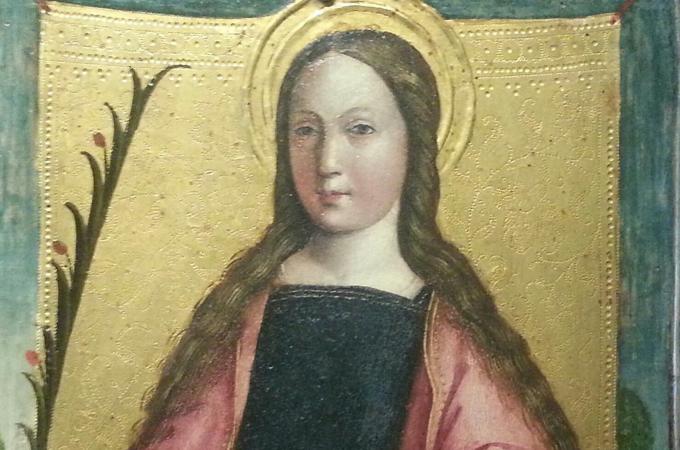Specific saints for specific requests?
Q. I often hear people say that they pray to specific saints for specific needs and that this is effective. I, though, have a certain few favorite saints, and I ask each of them to intercede with the Lord for all of my requests. So my question is this: Should I make an adjustment and pray instead to designated saints according to their "specialties"? (Danville, Indiana)
A. It is true that certain saints are regarded as having particular "specialties" -- either because of the history of that saint's life or the record of certain favors being granted through their intercession.
St. Matthew, for example, is considered the patron saint of bankers and bookkeepers because of his own occupation as a tax collector, and St. Luke is regarded as the patron of physicians.
St. Anne, the mother of Our Lady, is often invoked at childbirth, and St. Joseph has been called the patron of a happy death. St. Lucy, a fourth-century martyr who is thought to have had her eyes gouged out but her sight miraculously restored, is sometimes asked to intervene for problems with eyesight.
The church has long believed that the saints, our elder brothers and sisters in the faith, live now in God's presence and can intercede with the Lord on our behalf.
Around A.D. 350, Cyril of Jerusalem wrote that during the eucharistic prayer, "we make mention also of those who have already fallen asleep: first, the patriarchs, prophets, apostles and martyrs, that through their prayers and supplications God would receive our petition."
When we pray, it boosts our confidence and enhances our faith to know that the particular saint we ask to help might well have a special sympathy for our own circumstance. There is no definite and dogmatic answer, though, to the question you pose, and none of us can presume to be privy to the inner workings of heaven.
I think that you should continue exactly what you are doing -- communing with those saints to whom you are especially drawn and asking them to intervene in all of your needs.
Q. Our family recently moved from Ohio, where our parishes were united as to when the congregation knelt or stood. (Universally, we knelt during the consecration.)
In the new parish that we belong to now, roughly half of the congregation stands throughout the consecration while the other half kneels. Our family follows our old habit of kneeling, but this lack of uniformity feels awkward to us.
In other parishes we have attended in our new area, everyone seems to be kneeling at this time of the Mass. What is your opinion? (Since we are new here, we don't feel comfortable yet asking our priest.) (New York)
A. The answer to your question is simple and straightforward. The General Instruction of the Roman Missal says that "in the dioceses of the United States of America, they (i.e., the congregation) should kneel beginning after the singing or recitation of the Sanctus (Holy, Holy, Holy) until after the amen of the eucharistic prayer, except when prevented on occasion by ill health, or for reasons of lack of space, of the large number of people present or for another reasonable cause" (No. 43).
So people in your parish are correct in kneeling. The common posture of the congregation is a symbol of a community at worship united by faith, and it also fosters that sense of unity.
It is true that in many parts of the world the congregation does stand for most of the eucharistic prayer (except for the consecration, when everyone kneels), but the bishops of the U.S. felt that kneeling is regarded by Americans as the most reverential posture and is therefore the one most suitable for the entire eucharistic prayer.
Note that the language of the guideline does provide for exceptions; I have celebrated Mass, for example, in a multipurpose building with only folding chairs and no kneelers.
- Father Kenneth Doyle is a columnist for Catholic News Service



















